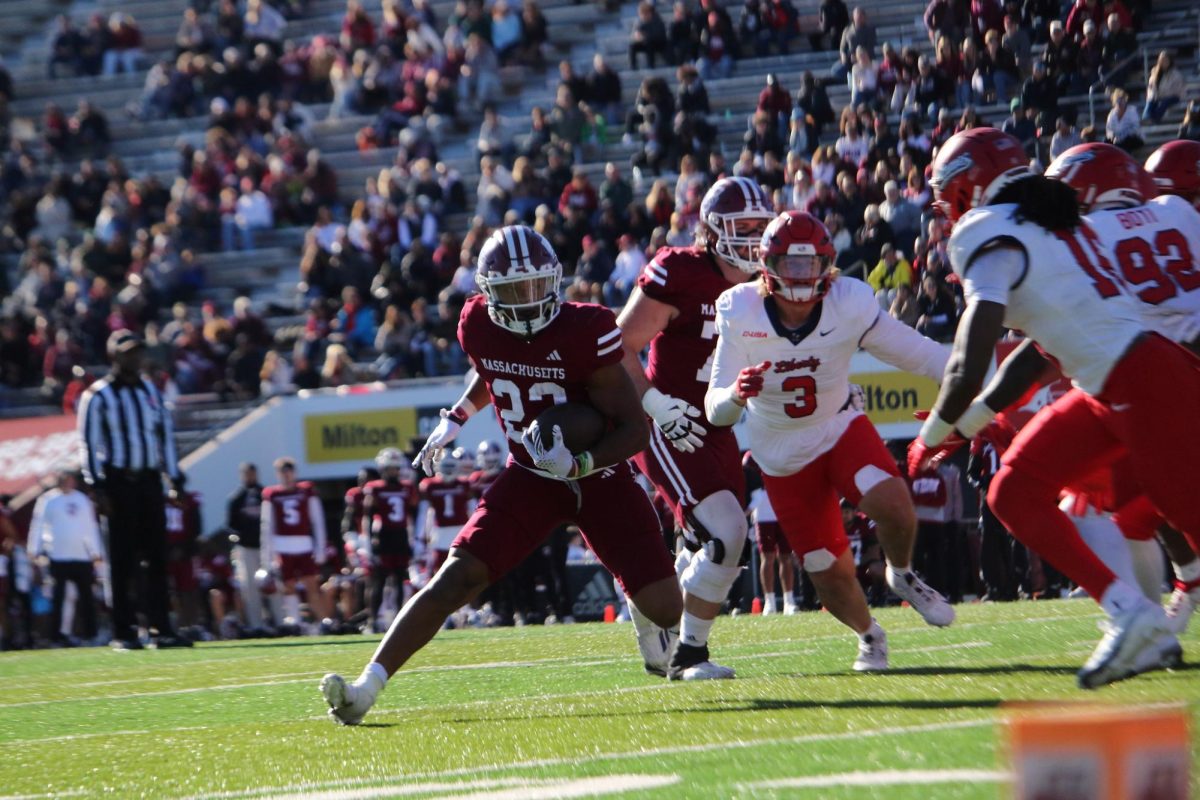MARIAH CAREY
Greatest Hits
Columbia
If anyone is waiting for the year 2001 to pass it’s got to be Mariah Carey. Her hospitalization for “extreme exhaustion” and twin flops of her movie and album Glitter created the most critically and commercially floundering year she has had since first hitting superstardom in 1990.
Now, a whole three years after Mariah Carey released her first hits package #1’s, former label Columbia Records releases Carey’s Greatest Hits. But Carey was barely, if at all, involved in the production. The photo on the cover sleeve is a recycled shot from the Butterfly shoot in 1997 and the collection contains no new singles and leaves off any tracks from the Glitter album.
Carey insists that #1’s shouldn’t be confused with a hits package because it only contains No. 1 hits while Greatest Hits contains all of her released singles, a few unreleased tracks and the No. 1 hits. Since 16 of the 28 tracks on the double-disc Greatest Hits appear on #1’s one can only wonder why another hits package is really necessary, even if they are “different.”
Carey was signed on to Columbia Records (an arm of Sony Records) through Sony Music chief Tommy Mottola, whom she married in 1993. After a very public breakup in 1997 success hasn’t been a sweet, sweet fantasy. Behind the scenes, the split sparked angry accusations of infidelity, abusive behavior, and artistic suppression. The man who had overseen every aspect of her career was slowly drifting out of the picture and though Carey eventually took control of her career, the latter claim continues to resonate to this day.
The woman who put the D in diva slowly degenerated into a maniacal pre-2000 phenomenon. When her contract ended last year Carey signed on to a $23.5-million per album deal with Virgin, finally ending any relationship, business or otherwise, with Mottola. One more record, however, was part of her contract with Columbia and the ex-cash cow decided to release this second greatest hits compilation-one that will unlikely rejuvenate her career. Carey, in part, blames Mottola for Glitter’s failure, stifling radio airplay and spreading bad buzz about the album.
All six of Carey’s Columbia studio albums are represented on Greatest Hits – one last farewell to one of the biggest artists in Sony history. Greatest hits compilations often serve as a rendering of one’s influence in pop culture. Unfortunately, Carey’s songs have little to no content beyond love and she’s had little to no impact in the culture. Trying to name three of Carey’s hits off the top of your head is harder than you may think. Even worse, Carey has yet to find her theme song. Whitney Houston’s is “I Will Always Love You,” Celine Dion’s is “My Heart Will Go On,” and Madonna has many, most notably “Material Girl.”
Placed in chronological order, the compilation is a reminder that Carey remains a teen pop star – a pristine pop persona fashioned from sugary ballads and girl-next-door clothes.
After closing out the 90s as the undisputed biggest selling female recording artist of the decade with 150 million albums and singles sold worldwide, singer/songwriter/producer Carey continues to remain a lightweight to her counterparts, despite her astonishing chart success.
There are many shining moments on Greatest Hits. Carey stylized dramatic pop ballads and straight up urban oriented party tunes in the 90s. “Fantasy” and “My All” stand up as the best pop tunes of the 90s. The relaxed swing of “Always Be My Baby” was a welcome relief to the power ballads of “Love Takes Time” and “Can’t Let Go.”
Carey isn’t famous for conveying attitude or writing lyrics that reflect personal drama but appealing rather through an astonishing five-octave vocal prowess. Stirring and emotive ballads such as “Hero,” a timeless classic, “Vision of Love,” “I’ll Be There” (featuring Trey Lorenz) are esteemed pop reflections. “Emotions,” “Dreamlover,” and “Honey” also represent some of the best radio hits of the last decade.
Carey clearly likes collaborations as seven tracks are duets. The biggest No. 1 hit in Billboard history with a staggering 16 week running streak, is Carey’s duet with Boyz II Men on “One Sweet Day.” The song reveals a breezy sexiness that Carey rarely displays. Disappointing collaborations include “When You Believe” with Whitney Houston from the Prince of Egypt soundtrack and “Thank God I Found You” featuring Joe ‘ 98 Degrees. Both are over-emoted and all too inspiring singles that have characterized much of Carey’s material. But it’s the horrible So So Def Remix of “All I Want For Christmas Is You” that earns the prize as the worst collaboration on the collection.
Greatest Hits showcases Carey’s primary limitation, the use of homogenous songs with pop and soul cliches. Butterfly marked Carey’s first album without hubby Mottola by her side. But as Greatest Hits proves, Carey never experienced a metamorphosis. Sure Carey’s got amazing pipes, but the same pallid songs have defined her career since day one. The only thing that did take wing, however, was Carey’s venture into hip-hop. Her first collaboration with the Wu Tang Clan’s Old Dirty Bastard not only marked a change in Carey’s musical direction but also a milestone in hip-hop and pop. But eventually her excursion to the hip-hop field left her screaming wildly in the background of tracks while rappers nearly controlled the entire song. Making a few hip-hop flavored songs on her albums is fine but that’s not why her fans love her. Carey is best when she really sings.
By the time the 90s had to come to a close Carey produced an unrivaled string of 15 No. 1 hits – more than any other female artist ever. Carey has co-written and co-produced all of her albums, which is more than can be said about many of today’s teenyboppers. In fact, aside from her chart topping cover of Jackson 5’s “I’ll Be There,” Carey co-wrote all of her No. 1 smashes. Carey, 31, is a relatively young star who still has years to convince us she’s a credible artist. Carey was named “Artist of the Decade” by the Billboard Music Awards and the Best Selling Female Artist of the Millennium by the World Music Awards. For these merits alone, Greatest Hits is a worthy pop compilation.






